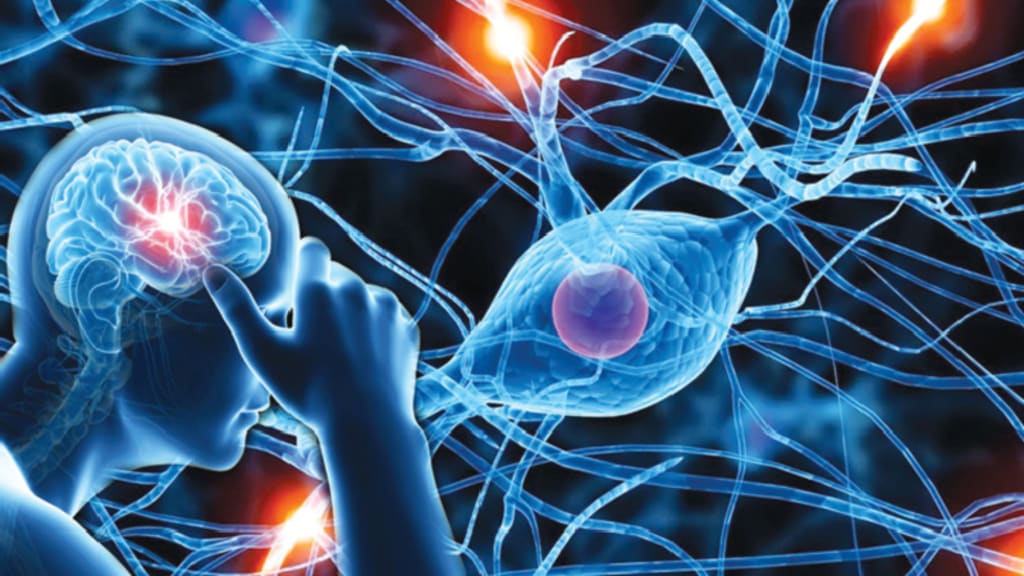Understanding the Intersection of Mental Health and Neurological Disorders
Mental Health and Neurological Disorders

Introduction:
In the realm of mental health, neurological disorders represent a complex and often overlooked facet. While mental health is commonly associated with conditions like depression, anxiety, and bipolar disorder, there exists a significant overlap with neurological disorders says by neurologist in varanasi that impact brain function. These disorders encompass a wide range of conditions, from Alzheimer's disease and Parkinson's disease to epilepsy and multiple sclerosis. Understanding the intersection between mental health and neurological disorders is crucial for holistic treatment and support.
The Link Between Neurological Disorders and Mental Health:
Neurological disorders can profoundly affect mental health and vice versa. The intricate relationship between the brain and mental well-being means that disruptions in neurological function can lead to psychological symptoms, and psychological distress can exacerbate neurological symptoms.
For instance, individuals with Alzheimer's disease often experience mood changes, including depression and anxiety, as the disease progresses and affects various brain regions responsible for emotions and memory. Similarly, Parkinson's disease, characterized by motor impairments, also presents non-motor symptoms such as depression, anxiety, and cognitive decline, which significantly impact quality of life.
Epilepsy, a disorder characterized by recurrent seizures, can also have significant psychological consequences. The unpredictability of seizures, the stigma associated with the condition, and the side effects of anti-seizure medications can lead to anxiety, depression, and social isolation among individuals with epilepsy.
Multiple sclerosis (MS), an autoimmune disorder affecting the central nervous system, can manifest with both physical and psychological symptoms. Fatigue, pain, and mobility issues are common physical symptoms, while mood disturbances, cognitive impairment, and depression are prevalent psychological symptoms in people with MS.
Challenges in Diagnosis and Treatment:
One of the primary challenges in addressing the mental health aspects of neurological disorders lies in diagnosis. Symptoms such as depression and anxiety may be attributed solely to the neurological condition, leading to under recognition and undertreatment of underlying mental health issues. Conversely, mental health symptoms may be dismissed as a natural response to coping with the challenges of living with a neurological disorder.
Moreover, the complex interplay between neurological and mental health symptoms necessitates a multidisciplinary approach to treatment. Healthcare providers must consider both neurological and psychological aspects when developing treatment plans. This may involve a combination of medication, psychotherapy, lifestyle modifications, and supportive interventions tailored to the individual's needs.
The Role of Supportive Care:
Supportive care plays a crucial role in addressing the mental health needs of individuals with neurological disorders. Support groups, counseling services, and caregiver support programs can provide valuable emotional support and practical assistance to both patients and their families.
Furthermore, raising awareness and reducing stigma surrounding neurological disorders and mental health is essential. Education campaigns and community initiatives can foster understanding, empathy, and acceptance, creating a more supportive environment for individuals affected by these conditions.
Research and Innovation:
Continued research into the relationship between neurological disorders and mental health is vital for improving diagnosis, treatment, and outcomes. Advances in neuroscience, psychopharmacology, and psychotherapy hold promise for developing more effective interventions that address the complex needs of individuals with these conditions.
Moreover, integrating mental health screening and support into routine neurological care can help identify and address psychological symptoms early, leading to better overall management and improved quality of life for patients.
Conclusion:
The intersection of mental health and neurological disorders highlights the intricate connection between brain function and psychological well-being. Recognizing and addressing the mental health needs of individuals with neurological conditions is essential for providing comprehensive care and improving outcomes. By fostering collaboration between neurology, psychiatry, and allied healthcare professionals, we can better support individuals affected by these complex conditions and enhance their quality of life.
About the Creator
Kaushik Manavadariya
I am the CEO & Founder of PreDoc - India and 3G Tech Solutions. I am loving to do coding myself to create innovative cloud-based products.





Comments
Kaushik Manavadariya is not accepting comments at the moment
Want to show your support? Send them a one-off tip.